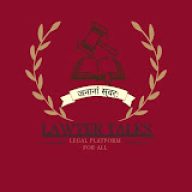BNSS Chapter wise Question set 2
Objective Questions of BNSS and theirs Answers which are provided below: –
Table of Contents
ToggleQuestions: –
1. According to Section 21 of BNSS, which of the following courts may try the cases under Bhartiya
Nyaya Sanhita, 2023?
(a) High Court
(b) Court of Session
(c) Any other court by which such offences are shown as triable in First Schedule
(d) All of the above
2. Under BNSS – Which of the following sentences a High Court can pass?
(a) Death sentence
(b) Imprisonment for life
(c) Rigorous imprisonment
(d) Any sentence authorised by law
3. Under BNSS- A Chief Judicial Magistrate may pass:
(a) Sentence of imprisonment not exceeding seven years
(b) Sentence for life imprisonment
(c) Sentence for imprisonment exceeding seven years
(d) Death sentence
Also Solve BNSS Chapter wise Question set 1: – Click Here
4. Under BNSS – The Court of Judicial Magistrate of the First Class may pass a sentence of imprisonment
for a term: –
(a) Not exceeding three years or a fine not exceeding Rs. 50,000 or community service
(b) Not exceeding one year or a fine not exceeding Rs. 10,000
(c) Not exceeding three years or a fine not exceeding Rs. 1,00,000
(d) Not exceeding seven years or a fine prescribed under the Code
5. Community service has been defined in which provision of BNSS?
(a) Explanation to Section 22
(b) Section 24
(c) Explanation to Section 23
(d) None of the above
6. Under BNSS- A Magistrate of second class can pass sentence upto-
(a) Imprisonment not exceeding one year or with fine not exceeding ten thousand rupees
(b) Imprisonment not exceeding two year or with fine not exceeding ten thousand rupees
(c) Imprisonment not exceeding one year or with fine not exceeding five thousand rupees
(d) Imprisonment not exceeding one year or with fine not exceeding twenty five thousand rupees
7. Which one of the following section of BNSS provides a sentence of imprisonment by the Court of
Magistrate in default of fine?
(a) Section 24
(b) Section 25
(c) Section 26
(d) Section 27
8. Under BNSS- Imprisonment in default of payment of fine can be awarded-
(a) to run concurrently with substantive sentence imposed
(b) in addition to the substantive sentence imposed
(c) Court can condone it
(d) None of these
9. Which of the following sections of the BNSS deals with competency to punish?
(a) Sections 22-23
(b) Sections 23-24
(c) Sections 25-26
(d) Section 21
10. Which of the following sections of the BNSS defines the term ‘Cognizance’?
(A) Section 2(c)
(B) Section 190
(C) Section 200
(D) Not defined
Answer: –
- D
- D
- A
- A
- C
- A
- A
- B
- A
- D
Also Read Our Latest Articles: –
- Dying declaration
- Bihar APO Exam Date 2026: Prelims Scheduled for July 15 – Check Official Notification
- UP APO Exam Date 2026 Announced: Check UPPSC Official Calendar & Schedule
- Indian Army JAG 124 Notification 2026: Vacancies, Eligibility, and Apply Online
- Official IBPS 2026-27 Calendar Out: Check SO Law & RRB Scale II Dates

2 thoughts on “BNSS MCQ [free]| OBJECTIVE QUESTIONS & ANSWER of BNSS”
Pingback: BNSS MCQ [free]| OBJECTIVE QUESTIONS & ANSWER of BNSS – Lawyer Talks
very good sir